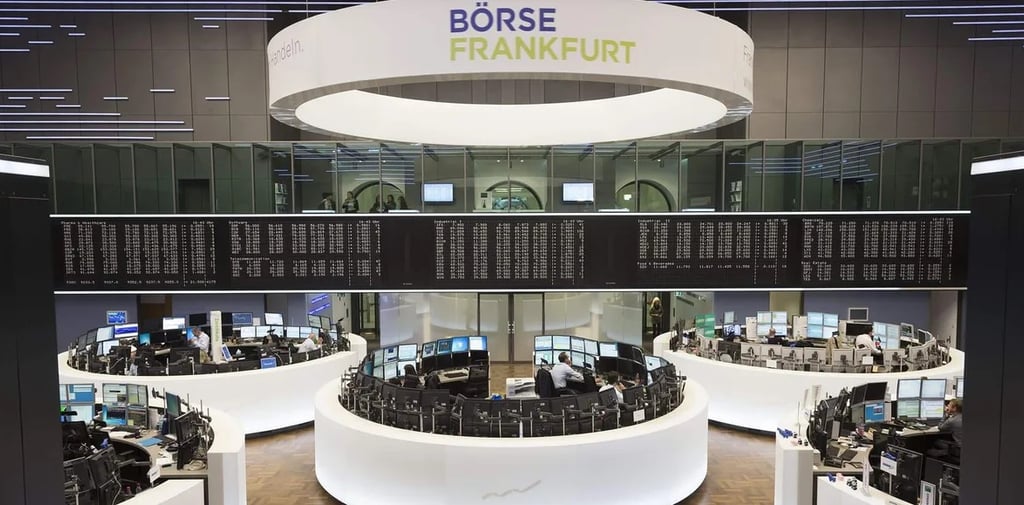An Introduction to European Stock Market and Indexes


When it comes to investing in stocks, the European stock market offers a wide range of opportunities for investors. With numerous stock exchanges and indexes, understanding the European stock market landscape is crucial for those looking to diversify their investment portfolio. In this article, we will explore the major European stock exchanges, the popular and influential stock market indexes, and the trends and outlook of the European stock market.
Major European Stock Exchanges
Europe is home to several major stock exchanges where companies can list their shares for trading. The most prominent European stock exchanges include:
London Stock Exchange (LSE): The LSE is one of the oldest and largest stock exchanges in the world. It is home to the FTSE 100 Index, which represents the 100 largest companies listed on the exchange.
Euronext: Euronext operates stock exchanges in Amsterdam, Brussels, Dublin, Lisbon, and Paris. It is known for its flagship index, the Euronext 100, which tracks the performance of the 100 largest and most liquid stocks across the Euronext exchanges.
Deutsche Börse: Based in Frankfurt, Germany, the Deutsche Börse is one of the largest stock exchanges in Europe. It is home to the DAX Index, which includes the 30 largest and most liquid companies listed on the exchange.
Borsa Italiana: Located in Milan, Italy, Borsa Italiana is the main stock exchange in Italy. The FTSE MIB Index, consisting of the 40 most liquid and capitalized stocks listed on the exchange, is widely followed by investors.
Bolsa de Madrid: The Bolsa de Madrid is the main stock exchange in Spain. The IBEX 35 Index, which comprises the 35 most liquid stocks traded on the exchange, is a key benchmark for Spanish stocks.
These stock exchanges provide a platform for companies to raise capital through initial public offerings (IPOs) and for investors to buy and sell shares of publicly traded companies.
Popular European Stock Market Indexes
Stock market indexes are used to track the performance of a specific group of stocks. In Europe, there are several popular and influential stock market indexes that provide insights into the overall market trends. Some of the notable indexes include:
FTSE 100 Index: The FTSE 100 Index, also known as the "Footsie," is a market-weighted index that represents the 100 largest companies listed on the London Stock Exchange. It is widely regarded as a benchmark for the UK stock market.
Euronext 100 Index: The Euronext 100 Index tracks the performance of the 100 largest and most liquid stocks listed on the Euronext exchanges. It provides a comprehensive view of the European stock market.
DAX Index: The DAX Index is a blue-chip index that includes the 30 largest and most liquid companies listed on the Deutsche Börse. It serves as a barometer for the German stock market.
FTSE MIB Index: The FTSE MIB Index represents the 40 most liquid and capitalized stocks listed on the Borsa Italiana. It is widely followed by investors interested in the Italian stock market.
IBEX 35 Index: The IBEX 35 Index tracks the performance of the 35 most liquid stocks traded on the Bolsa de Madrid. It is a key indicator of the Spanish stock market.
These indexes are constructed and calculated using different methodologies. Some indexes are market-weighted, where the weight of each stock is determined by its market capitalization. Others may be price-weighted or equally weighted, depending on the index methodology. The calculation of these indexes takes into account factors such as stock prices, market capitalization, and the inclusion criteria for constituent stocks.
Trends and Outlook of the European Stock Market
The European stock market has experienced various trends and outlooks in recent years. It is influenced by a wide range of factors and drivers, including economic conditions, political developments, and global market trends. Here are some key trends and factors shaping the European stock market:
Economic Growth: The European stock market is closely tied to the economic performance of the region. Economic growth, inflation rates, and interest rates play a significant role in driving stock market trends.
Political Developments: Political events, such as elections and policy changes, can have a significant impact on the European stock market. Investors closely monitor political developments to assess their potential impact on the business environment.
Global Market Trends: The European stock market is interconnected with global markets. Trends in major economies, such as the United States and China, can influence European stock market performance.
Sector Performance: Different sectors within the European stock market may experience varying levels of performance. Investors analyze sector-specific trends and outlooks to identify potential investment opportunities.
Regulatory Changes: Regulatory changes, such as new legislation or regulations, can impact specific industries or companies within the European stock market. Investors need to stay informed about regulatory developments that may affect their investments.
While past performance is not indicative of future results, understanding the trends and outlook of the European stock market can help investors make informed decisions. It is essential to conduct thorough research, diversify investments, and stay updated with the latest market developments.
In conclusion, the European stock market offers a diverse range of investment opportunities through its major stock exchanges and influential stock market indexes. By understanding the major European stock exchanges, the construction and calculation of popular indexes, and the trends and factors driving the European stock market, investors can navigate this dynamic market with confidence.

© 2024 Bezhan Azam. All Rights Reserved.
CONNECT WITH ME:
SITE LINKS
